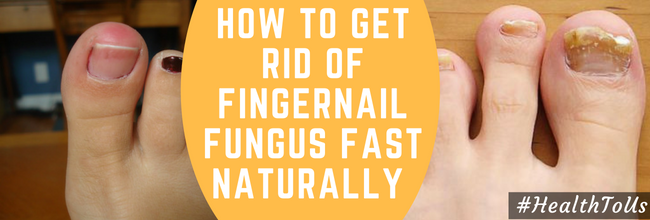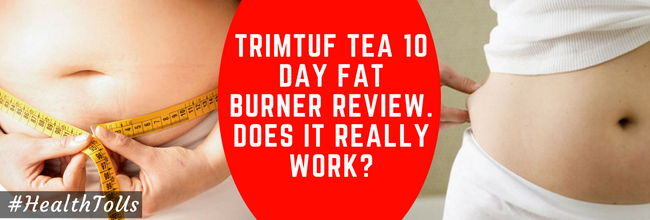
Often it is said that if you skip meals, your body will go into starvation mode, your metabolism will slow down, and you will gain weight. In fact people are often advised to eat up to 6 smaller meals per day in order to lose weight. However I would like to show you that this is not entirely true.
It is actually the weight loss industry that says this, not nutritionists. You may well ask why the weight loss industry would say such a thing if it is not true? Well it is actually a sales pitch they are giving, rather than genuine good scientifically based nutritional advice. Think about it for a minute – many weight loss and fitness companies say you should eat 6 meals per day in order to stay in fat burning mode. Can you guess why they say this?
It’s so that they can sell you their overpriced and over-hyped snacks and supplements. It is so difficult to eat so many meals every day, that you almost have to buy all their supplements in order to get by.
The truth is that all that matters from a weight loss perspective is the total calories consumed over the day. It doesn’t matter when they are consumed, morning, noon or night. You cannot eat more, but time it right and lose weight, and science agrees with this.
Some people do have some weight loss success eating several smaller meals per day, but this isn’t down to the metabolism slowing down. It is down to them changing their habits and eating less as a whole. You can do this in 3,4,5 or 6 meals per day.
You also hear a lot of advice about eating a large breakfast in the morning so that you eat less for the rest of the day. I have had a lot of success doing the reverse and eating a smaller breakfast and lunch. This fits with my personality and lifestyle. I am busier during the day, and so I can go a bit hungry without noticing it. In the evening when I want to wind down a bit more, I want to eat more. Because I have been stricter with my eating during the day, I can eat a bit more in the evening, and still lose weight. I have been in a calorie deficit in the morning and afternoon, so if I break even in the evening, I am still in a calorie deficit over the course of the day.
A lot of advice states that it is OK to eat a large breakfast, because you will burn it all off with your daily activities. This may or may not be true, depending on how much you eat, and how much you burn. But if your goal is to lose weight, then you need a calorie deficit. This means that you must burn more calories than you consume. Why not do this at breakfast time? Why not eat a small nutritious breakfast, like eggs or porridge, and burn off more than these calories by lunch? That way you have had a good start to your calorie burning day as you are dipping into your fat reserves for energy. Why aim to break even in the morning?
The reason I suggest foods like eggs and porridge is that they contain good amounts of proteins and many other nutrients, which will actually feed you, and keep you satisfied for longer. Foods such as bread and croissants contain calories with very little nutrition, which will have your body demanding more in order to fuel you. So aim to consume more good quality unprocessed nutritious foods if you want to lose weight. Anyway, I digress.
So what I am saying to you is not to worry about eating 6 times a day and buying loads of expensive supplements and snacks. Just eat a bit less than you do normally, and eat good quality highly nutritious food that will satisfy you for longer. This will allow you to consume less calories over the day. You could buy some smaller plates and give yourself smaller portions with every meal. Eat a little slower and really savour the taste of your food.
Eating 6 small meals every day of your life is no real way to live. How difficult is that in a practical sense? I personally would find it far easier to sustain the habit of preparing 3 healthy nutritious meals per day than 6. It is not necessary to have such an obsession with food. If you find that eating more meals suits your lifestyle and personality, then fine, it could work for you. But for the vast majority of us, eating all these meals every day will cause us to eat more calories, and eat less healthy foods, leading to weight gain. When we can’t sustain this effort, we feel guilty and give up. Find a way that works for you, that you can stick to in the long term.
Here are a few scientific studies that show that it doesn’t matter how often you eat if you are aiming to lose weight.
Meal frequency and energy balance.
Br J Nutr. April 1997 Apr
“More importantly, studies using whole-body calorimetry and doubly-labelled water to assess total 24 h energy expenditure find no difference between nibbling and gorging. Finally, with the exception of a single study, there is no evidence that weight loss on hypoenergetic regimens is altered by meal frequency. We conclude that any effects of meal pattern on the regulation of body weight are likely to be mediated through effects on the food intake side of the energy balance equation.”
Effects of meal frequency on energy utilization in rats.
Hill JO, Anderson JC, Lin D, Vanderbilt University
“The effects of differences in meal frequency on body weight, body composition, and energy expenditure were studied in mildly food-restricted male rats. Two groups were fed approximately 80% of usual food intake (as periodically determined in a group of ad libitum fed controls) for 131 days. One group received all of its food in 2 meals/day and the other received all of its food in 10-12 meals/day. The two groups did not differ in food intake, body weight, body composition, food efficiency (carcass energy gain per amount of food eaten), or energy expenditure at any time during the study. Both food-restricted groups had a lower food intake, body weight gain, and energy expenditure than a group of ad libitum-fed controls. In conclusion, these results suggest that amount of food eaten, but not the pattern with which it is ingested, has a major influence on energy balance during mild food restriction.”
So be free from life restricting diets that you can’t stick to and enjoy your food and enjoy your life. If you want to lose weight then simply reduce the size of your portions of food, and reduce the snacks you eat in between. Eat more nutritious foods in order to keep those hunger pangs at bay. Remember in order to lose weight and keep it off, you have to make permanent lifestyle changes. These changes have to be realistic in order to be sustainable if you want to keep the weight off for good.
If you need help reducing your food intake, then I *HIGHLY* recommend Gastric Band Hypnotherapy (Here). This is a new and very successful weight loss therapy that convinces your mind that you have undergone real gastric band surgery. This helps you to lose weight as it helps you to eat smaller portions and feel more satisfied with every meal.
Calculate Your Body Mass :

The reason I suggest foods like eggs and porridge is that they contain good amounts of proteins and many other nutrients, which will actually feed you, and keep you satisfied for longer. Foods such as bread and croissants contain calories with very little nutrition, which will have your body demanding more in order to fuel you. So aim to consume more good quality unprocessed nutritious foods if you want to lose weight. Anyway, I digress.
So what I am saying to you is not to worry about eating 6 times a day and buying loads of expensive supplements and snacks. Just eat a bit less than you do normally, and eat good quality highly nutritious food that will satisfy you for longer. This will allow you to consume less calories over the day. You could buy some smaller plates and give yourself smaller portions with every meal. Eat a little slower and really savour the taste of your food.
Eating 6 small meals every day of your life is no real way to live. How difficult is that in a practical sense? I personally would find it far easier to sustain the habit of preparing 3 healthy nutritious meals per day than 6. It is not necessary to have such an obsession with food. If you find that eating more meals suits your lifestyle and personality, then fine, it could work for you. But for the vast majority of us, eating all these meals every day will cause us to eat more calories, and eat less healthy foods, leading to weight gain. When we can’t sustain this effort, we feel guilty and give up. Find a way that works for you, that you can stick to in the long term.
Here are a few scientific studies that show that it doesn’t matter how often you eat if you are aiming to lose weight.
Meal frequency and energy balance.
Br J Nutr. April 1997 Apr
“More importantly, studies using whole-body calorimetry and doubly-labelled water to assess total 24 h energy expenditure find no difference between nibbling and gorging. Finally, with the exception of a single study, there is no evidence that weight loss on hypoenergetic regimens is altered by meal frequency. We conclude that any effects of meal pattern on the regulation of body weight are likely to be mediated through effects on the food intake side of the energy balance equation.”
Effects of meal frequency on energy utilization in rats.
Hill JO, Anderson JC, Lin D, Vanderbilt University
“The effects of differences in meal frequency on body weight, body composition, and energy expenditure were studied in mildly food-restricted male rats. Two groups were fed approximately 80% of usual food intake (as periodically determined in a group of ad libitum fed controls) for 131 days. One group received all of its food in 2 meals/day and the other received all of its food in 10-12 meals/day. The two groups did not differ in food intake, body weight, body composition, food efficiency (carcass energy gain per amount of food eaten), or energy expenditure at any time during the study. Both food-restricted groups had a lower food intake, body weight gain, and energy expenditure than a group of ad libitum-fed controls. In conclusion, these results suggest that amount of food eaten, but not the pattern with which it is ingested, has a major influence on energy balance during mild food restriction.”
So be free from life restricting diets that you can’t stick to and enjoy your food and enjoy your life. If you want to lose weight then simply reduce the size of your portions of food, and reduce the snacks you eat in between. Eat more nutritious foods in order to keep those hunger pangs at bay. Remember in order to lose weight and keep it off, you have to make permanent lifestyle changes. These changes have to be realistic in order to be sustainable if you want to keep the weight off for good.
If you need help reducing your food intake, then I *HIGHLY* recommend Gastric Band Hypnotherapy (Here). This is a new and very successful weight loss therapy that convinces your mind that you have undergone real gastric band surgery. This helps you to lose weight as it helps you to eat smaller portions and feel more satisfied with every meal.
















